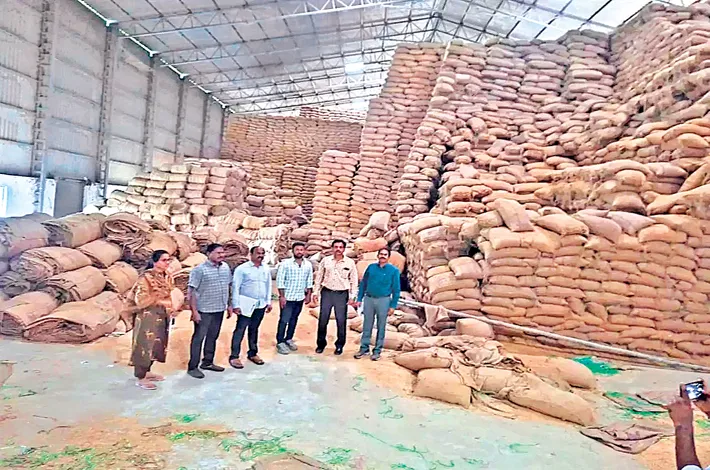ICRISAT scientists discover gene for pigeon pea resistance
12-08-2025 12:00:00 AM

Metro India News | Hyderabad
Scientists have found a key resistance gene that could change the way farmers fight Sterility Mosaic Disease (SMD) in pigeonpea, one of India’s most important pulse crops. The discovery, made by a team from ICRISAT in partnership with ICAR institutions, could help develop stronger and more sustainable pigeonpea varieties for farmers in India and across Asia.
“We’ve identified a resistance gene and validated four functional InDel markers associated with SMD resistance. These markers can now be used to screen pigeonpea breeding progenies at an early stage for SMD resistance. This gene information can also be valuable for genetic improvement through gene editing,” said Dr. Manish K. Pandey, Principal Scientist–Genomics, Pre-breeding & Bioinformatics at ICRISAT, who led the research.
Using advanced genomics, phenomics, and computational tools, the team identified the resistance gene Ccsmd04 in ‘Asha’ (ICPL 87119), an ICRISAT-bred variety widely grown for its natural tolerance to SMD.
“This is a landmark discovery, considering the severity of SMD in the region. The identified genetic variants, genes, and markers hold immense potential for breeding more resistant pigeonpea varieties,” said Dr. Himanshu Pathak, Director General, ICRISAT.
SMD is one of the most damaging diseases for pigeonpea, capable of destroying up to 90% of a farmer’s yield in severe outbreaks. ICRISAT has been working on host-plant resistance to SMD since 1975, but field success has been limited because of variations in both the virus and its mite vector.
“Disease resistance remains a top priority given its direct impact on farmer livelihoods and the environment,” said Dr. Stanford Blade, Deputy Director General – Research and Innovation, ICRISAT.
The study compared the genomes of resistant ‘Asha’ and susceptible ‘Maruti’ varieties. It found that ccsmd04 produces a dormancy/auxin-associated protein, but in susceptible plants, four mutations damage this protein, reducing resistance. The researchers now aim to find more resistance genes, including those from wild pigeonpea relatives, to ensure durable field protection and help India achieve self-sufficiency in pulses.








